Find the best tutors and institutes for Class 11 Tuition
Search in
We are in a new educational era where quality study materials, knowledge and smartness matter. Knowing the significance of all these, we, as an educational platform have come up with precise and thorough NCERT solutions for all Class 11 core subjects to help students such as you to achieve your desired score. You can find well-tailored Class 11 Chemistry NCERT Solutions in chapter-wise, solved by highly skilled science trainers. To bring a better understanding of the chapters in the textbook, we have created NCERT Chemistry Class 11 Solutions PDF.
NCERT as an autonomous organization owns the responsibility of developing and publishing the NCERT textbooks to bring qualitative improvement in school education. It also develops educational kits like sample papers, question papers and multimedia digital materials to help you with their studies. Even in competitive exams like JEE, IIT, UPSE, NEET etc., it is recommended to follow NCERT books.
You can now download NCERT Chemistry Class 11 PDF anytime. The detailed yet meticulously planned CBSE Class 11 Chemistry NCERT Book PDF provided is designed to help you understand each chapter thoroughly, moreover to help you study in an organised manner.
As we all know, the higher secondary stage is a significant phase of school education. New content-oriented and discipline-based courses are introduced at this stage. Several subjects, such as Chemistry, Physics, Biology, etc. are considered as an important part of the academic discipline (Group A). Such subjects help in gaining knowledge about nature, energy, the environment, technology breakthrough in science.
Talking about Chemistry as an academic subject in the higher secondary stage, chapters are drafted by the National Council Of Educational Research And Training (NCERT) with rigour and depth. It is kept in mind that the syllabus doesn’t turn out to be unmanageable for students; and at the same time, is comparable to the international level. List of the chapters studied in NCERT Class 11 Chemistry textbook include:
Chapter 1: Some Basic Concepts of Chemistry
This chapter covers basic concepts of Chemistry like Nature of matter, its properties, measurement, Law of Chemical combination etc. You will get a clear picture of Stoichiometry and Stoichiometric Calculations, Dalton’s Atomic Theory, Atomic and Molecular masses with a detailed explanation on Average Atomic Mass, Molecular Mass and Formula Mass.
Chapter 2: Structure of Atom
Chapter 2 will talk about the discovery of Sub-atomic Particles, Electron, Protons and Neutrons, Drawbacks of Rutherford Model, Developments Leading to the Bohr’s Model of Atom, Bohr’s Model for Hydrogen Atom, Quantum Mechanical Model of Atom etc., in detail.
Chapter 3: Classification of Elements and Periodicity in Properties
In this chapter, you’ll study the periodic table and its development from ancient times to date. Topics like Genesis of Periodic Classification, Electronic Configuration and types of Elements, Metals, Nomenclature of Elements with Atomic Numbers, Non-metals and Metalloids etc., will be covered in detailed.
Chapter 4: Chemical Bonding and Molecular Structure
The fourth chapter is about chemical bonding in detail. You’ll learn about Kössel-Lewis Approach to Chemical Bonding, Ionic or Electrovalent Bond, Bond Parameters, the concept of Valence bond and Covalent bond, The Valence Shell Electron Pair Repulsion (VSEPR) Theory and many other interesting topics.
Chapter 5: States of Matter
This chapter will talk about solid, liquid and gas, how atoms and molecules behave in these states. You’ll also get to learn about the existence of solid, liquid and gas with respect to their intermolecular forces and thermal energy.
Chapter 6: Thermodynamics
The topics covered under this chapter are – Thermodynamics and its system and surroundings. Difference between open, closed and isolated systems, laws of thermodynamics, calculate changes in the energy due to work and heat, study what is enthalpy and enthalpies for different kinds of reactions.
Chapter 7: Equilibrium
In this chapter, you’ll learn about Equilibrium in different Physical Processes, Equilibrium in Chemical Processes-Dynamic Equilibrium, Homogeneous Equilibria, Heterogeneous Equilibria, Applications of Equilibrium Constants, Ionization of Acids and Bases etc.
Chapter 8: Redox Reactions
Chapter 8 Redox Reactions will talk about the Classical Idea of Redox Reactions-Oxidation and Reduction Reactions, Redox Reactions in Terms of Electron Transfer Reactions, Oxidation Number, Redox Reactions and Electrode Processes etc., and its sub-topics.
Chapter 9: Hydrogen
In this chapter, you’ll study ‘Hydrogen’ in detail. The position of Hydrogen in the Periodic Table, Dihydrogen, its occurrence, properties and preparation of Dihydrogen, Hydrides, Hydrogen Peroxide, etc.
Chapter 10: The s-Block Elements
The s-Block is placed on the left side of the periodic table. s-Block Elements are the most commonly used on elements on earth. In this chapter, students you’ll learn about the 14 elements of s-Block and its characteristics. Group 1 Elements- Alkali Metals and Group 2 Elements – Alkaline Earth Metals. It’s Electronic Configuration, Atomic and Ionic Radii, Ionization Enthalpy, Hydration Enthalpy, Physical and Chemical Properties and the uses.
Chapter 11: The p-Block Elements
In the periodic table, the p-block elements begin from the 13th group and go till the 18th group. The p-block elements are good conductors of electricity and possess a shiny texture. Elements like Boron, carbon, nitrogen, oxygen, fluorine and helium are part of the p-block group. This chapter will give detail about electronic configuration, atomic radii, trends and anomalous properties of boron, aluminium, carbon, silicon and their compounds.
Chapter 12: Organic Chemistry – Some Basic Principles and Techniques
This chapter is about organic chemistry and carbon compounds. It will deal with the study of shapes of carbon compounds and salient features of π bonds, ways of representing organic compounds, categorisation of organic compounds, fundamental concepts in the organic reaction mechanism and many more.
Chapter 13: Hydrocarbons
Hydrocarbons are carbon compounds consisting only hydrogen and carbon atoms. In this chapter, you’ll learn about these hydrocarbons in detail, their salient features, physical and chemical properties, how these hydrocarbons are prepared, their chemical reactions etc.
Chapter 14: Environmental Chemistry
Chapter 14 Environmental chemistry is about biological, social, physical and chemical realms in our surroundings. In this chapter, you’ll learn about environmental pollution, causes and effect of atmospheric, water and soil pollution.
UrbanPro is India’s largest and most trusted learning network that provides trainers and institutes who have been reviewed and trusted by students across the country. We at UrbanPro, provide Trainers, Tutors, and Institutes nearby, across 1000+ categories. We likewise offer NCERT Solutions for Class 11 Chemistry that covers answers to all the questions in the Chemistry textbook. Adopting our Class 11 NCERT Solutions will help students such as you learn the Chemistry chapters thoroughly as scoring good marks in this subject is easy if you get the concepts right. Towards the end, we strongly recommend you to adopt our NCERT Solution provided for a better understanding of the subject.
Published on 2020-02-12 17:26:10 by arunima. Last Modified on 2020-02-12 17:26:10
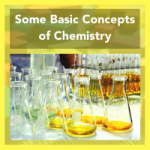
Chapter 1 Some Basic Concepts of Chemistry
In the first chapter of Chemistry, you will study about the importance of chemistry not only in our day to day lives but also towards the development of our country. You will begin with the study of what is matter, followed by various states of matter,...
Read More >
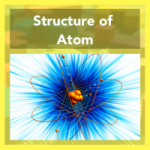
Chapter 2 Structure of Atom
In this chapter, you will learn about the structure of an atom in detail. As you are already aware of, an atom is the smallest unit of a matter, which is derived from the Greek word ‘a-tomio’ which means ‘indivisible’. The topic of the atom has attracted...
Read More >
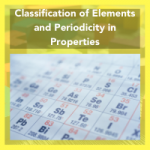
Chapter 3 Classification of Elements and Periodicity in Properties
In this chapter, you’ll study the periodic table and its interesting development from ancient times till date -- what we call as the ‘Modern Periodic Table’. The periodic table is nothing but a categorisation of chemical elements arranged based on their...
Read More >
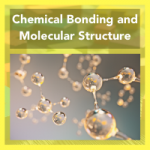
Chapter 4 Chemical Bonding and Molecular Structure
In this chapter, you will study chemical bonding and molecular structure in detail. You already know what you mean by an atom and a molecule. There is also something known as a chemical bond. A chemical bond is a bond built with the attractive forces...
Read More >
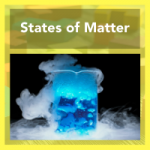
Chapter 5 States of Matter
In this chapter, you’ll study about different states of matter. You’ll learn about solid, liquid and gas and how atoms and molecules behave in these states. You’ll also study the existence of solid, liquid and gas with respect to their intermolecular...
Read More >

Chapter 6 Thermodynamics
In this chapter, you’ll learn about thermodynamics in detail. The word ‘Thermodynamics’ is derived from the Greek word ‘thermos’ which means heat, and ‘dynamics’ which means power. Thus, thermodynamics is nothing but a branch of physical science dealing...
Read More >
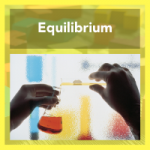
Chapter 7 Equilibrium
In this chapter, you’ll learn about equilibrium in detail. In chemistry, ‘Equilibrium’ means a state where the rate of the forward reaction is equal to the rate of the backward reaction. Thus, in a chemical reaction, equilibrium is achieved when the concentrations...
Read More >
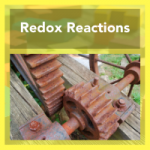
Chapter 8 Redox Reactions
In this chapter, you’ll study about Redox Reactions. ‘Redox Reactions’ also known as oxidation-reduction reactions are chemical reactions that consist of the transfer of electrons between two species, wherein one species is reduced and the other one is...
Read More >
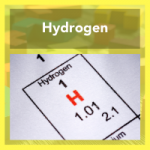
Chapter 9 Hydrogen
In this chapter, you’ll study ‘Hydrogen’ in detail. To your surprise, Hydrogen is the simplest and the lightest of all the chemical elements present on earth. The word Hydrogen is derived from the Greek words ‘hydro’ and ‘genes’ meaning - ‘maker of water...
Read More >
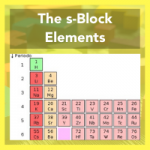
Chapter 10 The s Block Elements
In this chapter, you’ll learn about the s-Block elements shown on the leftmost side of the periodic table. These elements are the most common and most used elements on earth. The s-bock consists of 14 elements such as hydrogen (H), lithium (Li), helium...
Read More >
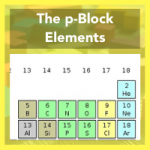
Chapter 11 The p Block Elements
In this chapter, you’ll learn about the p-block elements present in the periodic table. The p-block elements begin from the 13th group and go till the 18th group in the periodic table. Boron, carbon, nitrogen, oxygen, fluorine and helium head the p-block...
Read More >
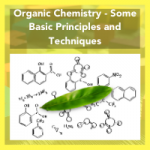
Chapter 12 Organic Chemistry Some Basic Principles and Techniques
In this chapter, you’ll learn about organic chemistry and carbon compounds. Organic chemistry is a branch of chemistry, which deals with the study of organic compounds (carbon compounds). Thus, organic chemistry deals with the structure, properties, reactions,...
Read More >
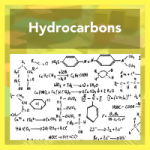
Chapter 13 Hydrocarbons
In this chapter, you’ll study about Hydrocarbons in detail. Hydrocarbons are carbon compounds consisting only hydrogen and carbon atoms. Various kinds of hydrocarbons are aromatic hydrocarbons, alkanes, alkynes and alkynes according to the types of bonds...
Read More >
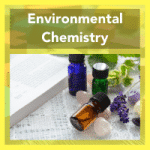
Chapter 14 Environmental Chemistry
In this chapter, you’ll study Environmental Chemistry. ‘Environmental Study’ is the study of biological, social, physical and chemical realms in our surroundings. ‘Environmental Chemistry’ is the study of the chemical processes that take place in water,...
Read More >
How helpful was it?
How can we Improve it?
Please tell us how it changed your life *
Please enter your feedback
Recommended Articles
Top Benefits of e-Learning
With the current trend of the world going digital, electronic renaissance is a new movement that is welcomed by the new generation as it helps makes the lives of millions of people easier and convenient. Along with this rapidly changing movement and gaining popularity of Internet, e-Learning is a new tool that emerging...
Read full article >
6 Healthy Habits of School Children
While schools provide formal education to the children, the home is where they start learning about things informally. Parents think that schools will take the initiative to educate their children. Well, this is partially true, as parents also play an essential role in bringing up their child. For the development of particular...
Read full article >
The Rising Problems in Indian Government School
With the mushrooming of international and private schools, it may seem that the education system of India is healthy. In reality, only 29% of children are sent to the private schools, while the remaining head for government or state funded education. So, to check the reality of Indian education system it is better to look...
Read full article >
Find best tutors for Class 11 Tuition Classes by posting a requirement.

Get started now, by booking a Free Demo Class